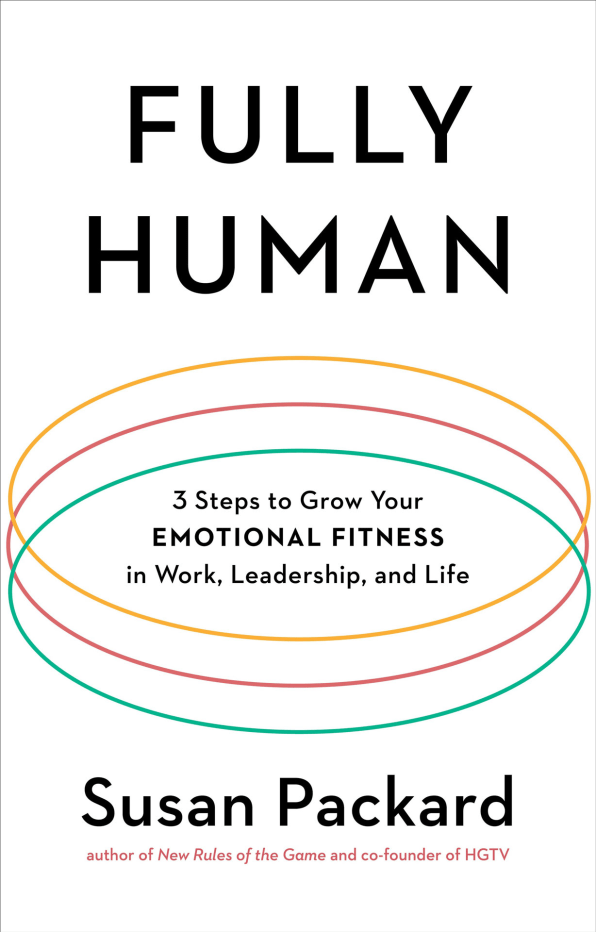#JobSearch : Former Netflix International Executive Recruiter Shares How To Get Hired. Great Ideas to Explore for your Career.
Talent acquisition is not just about finding someone to fill a position; it’s about identifying individuals who possess the unique blend of skills, experience and cultural fit to drive success at the highest levels, according to Marta Munk de Alba, who finds reward in shaping the future of businesses.
Most recently, Munk de Alba served as the director of talent acquisition across the Europe, Middle East and Africa regions at Netflix, where she made significant contributions during her tenure. In this role, she led and continuously defined the talent acquisition strategy at scale. Her career trajectory reflects her wide-ranging expertise in recruitment, human behavior and global mobility.
In a Q&A with me, Munk de Alba discusses what makes an effective internal executive recruiter, the talent acquisition challenges she faced at Netflix and gives us insight into the infamous culture, characterized by a “sports team” mentality and radical candor. Lastly, with her extensive experience as a hiring leader, she offers career advice to job seekers, including interviewing do’s and don’ts and why it’s important to leave room for serendipitous opportunities.
Recruiting
Jack Kelly: What are some of your secrets to success recruiting top executives for Netflix?
Marta Munk de Alba: As a recruiter at Netflix, I found two aspects crucial: deep knowledge of the business and a thorough understanding of the culture. Establishing trust with executive talent hinges on demonstrating a strong understanding of Netflix’s operations and presenting an honest depiction of the culture.
Building relationships is paramount too. I prioritized connecting with internal stakeholders to gain business acumen and an understanding of the business goals and staying informed about industry leaders for potential talent outreach.
Transparency and honesty are foundational principles in my recruitment approach. Maintaining clear communication internally and externally fosters trust and credibility, which were essential not only in my role as a recruiter but also as a leader at Netflix.
Like this Article? Share It! You can now easily enjoy/follow/share Today our Award-Winning Articles/Blogs with Now Over 3.5 Million Growing Participates Worldwide in our various Social Media formats below:
Updated NEWS: #BestofFSCBlog – Aug23 we hit Two Milestones: #1– Hit over 1.2 million impressions on our FSC Career Blogs within 7 days on LinkedIn……. #2– Over 3.5 Million participates on our FSC Career Blog page below within three years! Both the Team/myself want to thank you all for participating! …… Chris G. & Team,www.firstsun.com
Daily FSC Career Blogs/Articles: Articles/blogs on today’s Job Search (Over 8K Daily Readers)- Go to ‘Blog Search’ & type in updated info on resumes, job search, networking, social media job search, etc.
https://www.firstsun.com/fsc-career-blog/
New- FSC LinkedIn Newsletter– Daily articles/blogs on Today’s Job Market & Seach. Subscribe Today!
https://www.linkedin.com/newsletters/fsc-linkedin-network-7081658661743308800
Connect with us on LinkedIn (under Chris G. Laughter) : https://www.linkedin.com/in/chris-g-laughter-b46389198/
Best Daily Choice: Follow the Best of FSC Career Articles/Blogs @
https://twitter.com/search?q=bestoffscblog&src=typeahead_click
Question: Searching for ‘the Best Daily Career Search Articles/Blogs on the web’ on Job Search, Resume, Advancing/Changing your Career, or simply Managing People?
Answer: Simply go to our FSC Career Blog below & Type (Jobsearch, Resume, Networking, etc) in Blog Search: https://www.firstsun.com/fsc-career-blog/
What Skill Sets Do You Have to be ‘Sharpened‘?
Did you know? First Sun Consulting, Llc (FSC) is celebrating over 32 years in delivering corporate & individual outplacement services & programs to over 1200 corporate clients in the U.S., Canada, the UK, & Mexico! Visit us @ www.firstsun.com OR Ask for a Quote for Services at info@firstsun.com
We here at FSC want to thank each of our corporate partners for the opportunity to serve & moving each of their transitioning employee(s) rapidly toward employment!
Article continued …
Kelly: What challenges did you face in scaling the EMEA teams? What are recruiting hurdles you encountered when it was a smaller company versus obstacles when it became this streaming giant?
Munk de Alba: Scaling the teams within EMEA posed numerous challenges. Initially, finding and attracting the right talent was tough because we were still establishing our brand and reputation. We put in extra effort to attract top talent accustomed to thriving in renowned companies in the region. Since it was our first time hiring outside of the U.S., we had to navigate labor laws, visa requirements and cultural nuances to ensure compliance and respect for local practices while meeting our staffing needs. At that time, nearly all our hires relocated to Amsterdam. Moreover, it was crucial to set clear expectations about the Netflix culture, which was entirely new to the region and sometimes seemed too disruptive or intimidating.
As we expanded, recruiting hurdles evolved but didn’t necessarily become easier. We grappled with managing the overwhelming volume of applications flooding in. With our growing visibility and reputation as a sought-after employer, we were bombarded with résumés, making it challenging to efficiently identify the best fits. Additionally, as teams in the region grew, more specialized and intricate roles emerged, making it increasingly difficult to find equivalents within EMEA.
Culture
Kelly: How is it to work at a company that acknowledges that ‘we’re not a family,’ but rather a ‘sports team’?
Munk de Alba: For me, working in a company that adopts a ‘sports team’ mentality or the ‘jazz band’ analogy is energizing and motivating, as it represents a dynamic and goal-oriented environment. I also think it’s a more honest and authentic analogy for a working environment than a ‘family.’ Families are normally unconditional. Family members don’t fire each other. A company is different.
The competitive spirit doesn’t necessarily overshadow other important aspects, such as teamwork, collaboration and shared goals. Success is earned through hard work and contributions rather than simply based on seniority.
Teamwork is at the core of everything. There is close collaboration, leveraging each other’s strengths to achieve common objectives. There is a strong sense of personal responsibility to deliver results, which are generally thanks to a collective effort Vs individual.
Like in any team or music band, there is an aim for continuous improvement. Feedback is frequent and constructive, allowing to make rapid adjustments and continually enhance the groups’ skills. Healthy competition drives to innovate and excel, and fosters a sense of camaraderie—different to a friendship or a family relationship.
Above all, there’s a shared understanding of goals and how each individual contributes to achieving them. This clarity helps align efforts and fosters a sense of unity and purpose.
Kelly: Can you describe what it’s like to work at a company that subscribes to ‘radical candor’? Is this a positive or negative for most people?
Munk de Alba: Working at a company that embraces radical candor is stepping into an environment where honesty is not only valued but celebrated and expected. It’s an atmosphere where feedback flows freely, both upward and downward, without fear of repercussion.
On the positive side, radical candor fosters a culture of openness and trust. You know where you stand at all times because people aren’t tiptoeing around issues or sugar-coating feedback. This transparency can lead to faster growth and development as individuals and as a team because you’re constantly receiving actionable insights on how to improve.
However, it can also be challenging for some people, especially those who are not accustomed to such directness or come from cultures where radical candor is not a positive thing. It requires a certain level of emotional maturity to receive constructive criticism without taking it personally. Some might find it uncomfortable or even confrontational initially.
Overall, whether it’s positive or negative largely depends on the individual’s personality and how they perceive feedback. For those like me who value and appreciate straightforward communication, working in a culture of radical candor can be incredibly rewarding. But for others, it might feel intimidating.
I personally think it’s very positive as long as it’s done in an empathetic way with good intent in mind always.
Career Advice
Kelly: What’s some of your best advice to job seekers—such as the do’s and don’ts of interviewing?
Munk de Alba: Research the company thoroughly before the interview. Understand their values and mission. Demonstrate how your values align with those of the company. Also, get acquainted with the business model, strategy, goals and latest news, if any. Demonstrate, whenever possible, that you’re up-to-date with industry trends, technologies and best practices.
Try to have concise and clear answers. Showcase your accomplishments and skills with specific examples from your past experiences, but also be prepared to speak honestly about failures and improvement areas. Be prepared for behavioral questions. Expect questions about how you’ve handled specific challenges or situations in the past. Show curiosity. Ask thoughtful questions about the company, the team and the role during the interview. If you are skeptical about anything, bring it up in the interview too. This also helps you gauge whether the company is the right fit for you.
Show enthusiasm. Even if you’re interviewing for a role that may seem less challenging than previous positions, maintain a high level of enthusiasm and interest.
Pay attention to your demeanor during the interview. Ensure your behavior reflects professionalism and respect.
Avoid speaking negatively about previous employers. Focus on the positive aspects of your experiences and what you learned from them. Don’t dominate the conversation. It’s meant to be that—a conversation. Remember to listen actively and respond thoughtfully. Avoid vague or generic answers. Be specific and provide concrete examples whenever possible.
Don’t oversell yourself. While it’s important to highlight your skills and experiences, avoid exaggerating or embellishing your achievements. Be honest and authentic. Confidence tempered with humility is the way to go. Don’t assume you know everything. Be open to new ideas and perspectives. Avoid coming across as rigid or unwilling to consider alternative approaches.
Kelly: Why is it important for people to be strategic in each career move?
Munk de Alba: Amidst all this talk about strategic decision-making, I’ve come to realize there’s also something to be said about leaving a little room for fate. It’s allowing for spontaneity in life. Sometimes, no matter how meticulously we plan, there are moments when unexpected opportunities come knocking, or doors we never knew existed swing wide open. Leaving space for fate doesn’t mean abandoning all strategy; rather, it’s about being open to serendipity and embracing the unknown.
I’ve found that some of the most remarkable experiences and opportunities have come my way when I least expected them, simply because I was open to the possibility of something beyond my plans. So, while strategic thinking is important to align our actions to our long-term goals, sometimes the best paths reveal themselves when we least expect it.
Being strategic can also allow us to anticipate and adapt to changes in the job market, like having a plan B or being clear about the tradeoffs we are willing to make.
That said, I think that understanding what it means to be strategic often comes with experience. Consciously incorporating strategic thinking into early career decisions can be challenging. Moreover, the concept of strategic decision-making can vary from person to person, depending on individual goals, values, and circumstances. What may be strategic for one individual might not be the same for another. Therefore, it’s important for individuals to define what strategic means to them personally and align their decisions accordingly.
Kelly: What advice would you give to young people starting out in their careers?
Munk de Alba: Navigating the beginning of your career journey is full of excitement and uncertainty. It’s a sentiment I often share with my niece (22) and nephew (24) as they set out on their professional paths.
Starting out professionally can be both exciting and daunting because often you don’t really know what you want and where. The advice I give them and I would give anyone to help them navigate this journey is first and foremost, trust your instincts and follow your passions. Your initial steps may seem monumental, but they’re just the beginning. Your career path is as unique as you are, and it’s okay to explore and evolve along the way. Life gives us all many opportunities to shift and change our minds. Not everything you decide when you are a fresh graduate or you are early on in your career will define everything that happens after.
That said, there are some practical things that people starting their careers can do. Set some goals, even if just aspirational, big or small. This is just to give yourself direction. Take some time to understand what you want to achieve in your career. These goals will serve as guiding lights, helping you navigate through the twists and turns of your journey.
Embrace a mindset of continuous learning. Seek out opportunities to gain new skills. I am a strong believer in learning by doing. Something that initially might not seem like the perfect option, could be something that teaches you useful skills or something for which you develop a passion. Be willing to explore new ideas and opportunities.
Stay curious and open-minded. Stay informed about industry trends and developments in your industry or area of interest.
Networking is key in today’s professional world. Build connections. Connect with colleagues, mentors, and industry professionals who can offer guidance, support and opportunities. Learn through others too.
Actively seek feedback from people around you. That can be supervisors, peers and mentors, but also family, friends or acquaintances. Ask yourself: who do you admire? Then, go and try to have a conversation with them.
Be proactive. Don’t wait for opportunities to come to you. Take initiative, volunteer for projects and seek out challenges that will help you grow professionally. Spend time looking for that right opportunity, even if unpaid.
Soft skills are important—communication, teamwork, adaptability and problem-solving. These are often just as important as technical expertise in the workplace, sometimes even more.
Embrace challenges and failure as a natural part of the learning process. Each setback is an opportunity to learn, adapt and come back stronger. Resilience is a valuable skill in any career. I generally think we learn more from overcoming challenges and navigating failure than from successes. And, normally, we all recover from failures.
Last but not least, don’t be afraid to take calculated risks in your career. Sometimes deviating from your initial plan or stepping out of your comfort zone is necessary for growth and advancement.
The conversation has been edited and condensed for clarity.







